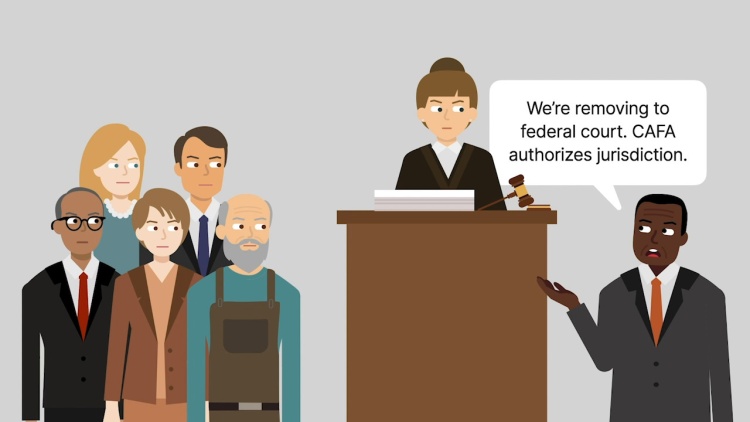Standard Fire Insurance Co. v. Knowles
United States Supreme Court
568 U.S. 588 (2013)

- Written by Josh Lee, JD
Facts
Greg Knowles (plaintiff) filed a class action lawsuit against Standard Fire Insurance Company (insurance company) (defendant), alleging that the insurance company failed to compensate homeowners for a general contractor fee when claims were paid. Knowles filed this lawsuit in an Arkansas state court. The proposed class included hundreds and possibly thousands of Arkansas policyholders. The lawsuit stated that Knowles and the class sought to recover damages of less than $5 million. Knowles also attached an affidavit to the complaint that again stipulated that Knowles would not seek damages for the class in excess of $5 million, in the aggregate. The insurance company removed the lawsuit to federal court based on the Class Action Fairness Act (CAFA), which grants jurisdiction of class actions where the total amount in controversy exceeds $5 million dollars. The trial court determined that the claim would likely exceed $5 million but accepted the stipulations of Knowles regarding the amount of damages that would be sought. The trial court remanded the case back to state court. The insurance company appealed the remand order to the United States Court of Appeals for the Eighth Circuit, which declined to hear the appeal. The insurance company then sought review by the United States Supreme Court.
Rule of Law
Issue
Holding and Reasoning (Breyer, J.)
What to do next…
Here's why 907,000 law students have relied on our case briefs:
- Written by law professors and practitioners, not other law students. 47,100 briefs, keyed to 996 casebooks. Top-notch customer support.
- The right amount of information, includes the facts, issues, rule of law, holding and reasoning, and any concurrences and dissents.
- Access in your classes, works on your mobile and tablet. Massive library of related video lessons and high quality multiple-choice questions.
- Easy to use, uniform format for every case brief. Written in plain English, not in legalese. Our briefs summarize and simplify; they don’t just repeat the court’s language.





